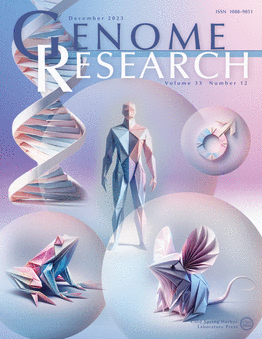探索常见复杂疾病基因关联的 PWAS 中心
IF 6.2
2区 生物学
Q1 BIOCHEMISTRY & MOLECULAR BIOLOGY
引用次数: 0
摘要
全蛋白质组关联研究(PWAS)是一种创新的遗传关联方法,是对广泛使用的全基因组关联研究(GWAS)等方法的补充。PWAS 方法包括几个连续的阶段。首先,机器学习建模和概率考虑量化遗传变异对蛋白编码基因生化功能的影响。其次,针对每个个体,汇总每个基因的变异,确定基因损害评分。最后,在病例对照设置中启动标准统计检验,得出每个表型中具有统计学意义的基因。PWAS 中枢为深入研究英国生物库(UKB)中基因与疾病的关联提供了一个用户友好型界面。PWAS 的结果涵盖 99 种常见疾病和病症,每种表型都有超过 10,000 名确诊患者。用户可以探索与这些疾病相关的基因,并分别对男性和女性进行分析。对于每种表型,分析都会考虑到基于性别的遗传效应、遗传模式(显性和隐性)以及相关基因的多效性。PWAS 中枢通过浏览蛋白质组遗传分析,展示了其对哮喘的实用性。通过检查 PWAS 列出的哮喘基因(共 27 个),可以深入了解潜在的细胞和分子机制。将常见疾病中具有统计学意义的 PWAS 基因与 Open Targets 基准进行比较后发现,大多数表型的基因关联存在部分但显著的重叠。图形工具便于比较 PWAS 和编码 GWAS 结果之间的遗传效应,有助于了解性别特异性遗传对常见疾病的影响。这个适应性强的平台对临床医生、研究人员和有兴趣深入研究基因-疾病关联和性别特异性遗传效应的个人很有吸引力。本文章由计算机程序翻译,如有差异,请以英文原文为准。
PWAS Hub for exploring gene-based associations of common complex diseases
PWAS (proteome-wide association study) is an innovative genetic association approach that complements widely used methods like GWAS (genome-wide association study). The PWAS approach involves consecutive phases. Initially, machine learning modeling and probabilistic considerations quantify the impact of genetic variants on protein-coding genes’ biochemical functions. Secondly, for each individual, aggregating the variants per gene determines a gene-damaging score. Finally, standard statistical tests are activated in the case-control setting to yield statistically significant genes per phenotype. The PWAS Hub offers a user-friendly interface for an in-depth exploration of gene–disease associations from the UK Biobank (UKB). Results from PWAS cover 99 common diseases and conditions, each with over 10,000 diagnosed individuals per phenotype. Users can explore genes associated with these diseases, with separate analyses conducted for males and females. For each phenotype, the analyses account for sex-based genetic effects, inheritance modes (dominant and recessive), and the pleiotropic nature of associated genes. The PWAS Hub showcases its usefulness for asthma by navigating through proteomic-genetic analyses. Inspecting PWAS asthma-listed genes (a total of 27) provide insights into the underlying cellular and molecular mechanisms. Comparison of PWAS-statistically significant genes for common diseases to the Open Targets benchmark shows partial but significant overlap in gene associations for most phenotypes. Graphical tools facilitate comparing genetic effects between PWAS and coding GWAS results, aiding in understanding the sex-specific genetic impact on common diseases. This adaptable platform is attractive to clinicians, researchers, and individuals interested in delving into gene–disease associations and sex-specific genetic effects.
求助全文
通过发布文献求助,成功后即可免费获取论文全文。
去求助
来源期刊

Genome research
生物-生化与分子生物学
CiteScore
12.40
自引率
1.40%
发文量
140
审稿时长
6 months
期刊介绍:
Launched in 1995, Genome Research is an international, continuously published, peer-reviewed journal that focuses on research that provides novel insights into the genome biology of all organisms, including advances in genomic medicine.
Among the topics considered by the journal are genome structure and function, comparative genomics, molecular evolution, genome-scale quantitative and population genetics, proteomics, epigenomics, and systems biology. The journal also features exciting gene discoveries and reports of cutting-edge computational biology and high-throughput methodologies.
New data in these areas are published as research papers, or methods and resource reports that provide novel information on technologies or tools that will be of interest to a broad readership. Complete data sets are presented electronically on the journal''s web site where appropriate. The journal also provides Reviews, Perspectives, and Insight/Outlook articles, which present commentary on the latest advances published both here and elsewhere, placing such progress in its broader biological context.
 求助内容:
求助内容: 应助结果提醒方式:
应助结果提醒方式:


